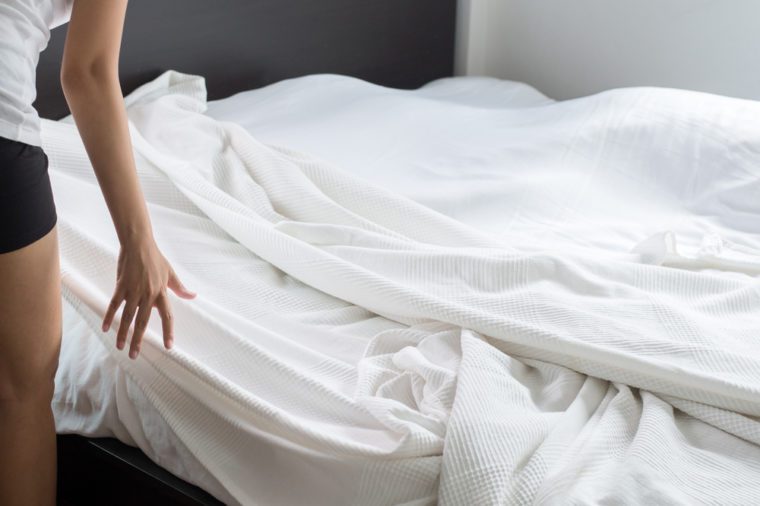Improve Your Sleep Environment | Part 4: Soothe the Senses for Peaceful ZZZZs

If you’re having trouble sleeping, the first step to a good night’s sleep is finding ways to improve your sleep environment. Before you pop a sleeping pill, try making your bed every day for at least a week and giving your bedroom a spring cleaning. Vacuum, dust, change the sheets, clean (and close) the drapes or blinds. A neat, decluttered, healthy bedroom may be all you need to get back to snoozing soundly at night and waking refreshed in the morning.
Turn Down the Intensity
In my ongoing blog series, I’m looking for ways to improve your sleep environment in order to create the optimum atmosphere for healthy sleep. Sleep psychologist Shelby Harris of the Montefiore Sleep-Wake Disorder Center’s Behavioral Sleep Medicine Program told WebMD that sleep environment is a vital but often neglected part of getting a good night’s sleep.
Sleep isn’t like a light switch you can turn off and on at will, said Harris—“I encourage my patients to think of it more like a dimmer.” Unplugging from the computer, turning down the lights, and retiring to a clean, airy, cool bedroom can help your body get into the mood for sleep.
Sleep Research Supports Cleaning Up to Zonk Out
A survey commissioned by the National Sleep Foundation (NSF) and reported on WebMD by Laura J. Martin, MD in 2011 found that people sleep better when their rooms are clean and soothe the senses. David Cloud, NSF Chief Operating Officer, told WebMD they were “surprised to see that senses like touch, feel, and smell were so important” among respondents to a random sleep survey of 1500 American adults. According to the results:
- Fresh air, cool room temperature, and a clean, dark bedroom were important to almost three fourths of respondents.
- Six out of ten changed their sheets weekly; three out of four said they slept better on sheets with a fresh scent.
- Seven out of ten made their bed (either “almost” every day or every day). Bed makers were 19 percent likelier to report being good sleepers who get solid sleep “almost every night” or “every night.”
Clean-smelling sheets and a clutter-free bedroom won’t fix major sleep disorders like sleep apnea or restless legs syndrome. But if your occasional wakefulness seems due to a racing mind or a little anxiety, a bedroom that soothes you to sleep might be just the ticket to dreamland. Shore up your sleep hygiene before you spend money on doctor’s visits or expensive (and potentially dangerous) prescriptions.
Author Bio: +Michelle Gordon is a sleep expert who researches and writes about sleep and health, and is an online publisher for the latex mattress specialist Latexmattress.org.


